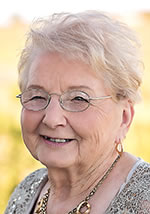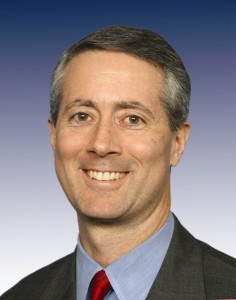
Celebrating Summer

The Clarendon Enterprise - Spreading the word since 1878.

Clarendon and Howardwick volunteer firemen were called into action Sunday afternoon when a downed power line ignited a grass fire near the Greenbelt Dam.
Clarendon Fire Chief Jeremy Powell the departments were paged out about 4:30 p.m. after the AEP/SWEPCO transmission line started a fire on the south side of the Salt Fork of the Red River.

“The fire wasn’t out of control, but it was in a rough area that was hard to get access to,” Powell said.
Howardwick responded with three trucks, and Clarendon’s department had six trucks respond.
The fire burned about 60 acres before being contained by 8:30 that evening, and firemen returned to the station an hour later.
The incident shows that, even with recent rains, high temperatures can create a dangerous situation.
“It’s dry enough that it doesn’t take much to start a fire,” Powell said. “Last week’s 105+ temperatures dried out grass, especially by the highways, so we’re going to be under the fire gun for a while.”
Wes Smith says he isn’t a hero. But his actions last week prove otherwise.
An Amarillo woman owes her life to Smith’s quick response to save her from drowning at Lake Greenbelt on Tuesday, July 17.

Smith said he was parked on top of a hill near the Lakeside Marina early that afternoon, looking down on what the lake calls Short Beach. It was there that he saw a group of four women and felt like something was wrong.
“You just get a feeling that something isn’t right sometimes,” Smith said.
As he watched, he noticed that a float had gotten away from the group. Two women had gone after it while the other two remained on the shore.
“I’m not really sure what happened, but I saw one of them start flapping her arms like she was struggling,” Smith said, “and the friend started toward her. That’s when I hauled butt down there.”
As a 22-year employee for Greenbelt Water Authority and a 15-year veteran of the Clarendon Volunteer Fire Department and Dive Team, Smith has dealt with his fair share of fatal drownings at the lake. He raced his pickup down to the shore by the dam, then stripped to his underwear, ran barefoot across the rock-strewn shore, and hit the water as the woman’s friend in the water was calling for help.
Between 75 and 80 yards from the shore, Smith got to the woman as she was yelling, “I can’t breathe!”
“She was about to go under when I grabbed her,” Smith said. “She was out as I pulled her to shore. Her friend helped me get her up to where I could start CPR.”
An unidentified man boating nearby pulled up about that time, and Smith asked him to take over CPR so he could get back to his truck and call 911.
“She was in and out,” Smith said. “Then the ambulance showed up. We carried her to the ambulance, and they Lifestarred her to Amarillo.”
Smith said none of the women were wearing lifejackets and he didn’t think they had been drinking. The Donley County Sheriff’s Office identified the woman in distress as 21-year-old Crystal Brown of Amarillo.
Clarendon Fire Chief Jeremy Powell said Brown is very lucky because hers is not how these cases usually turn out.
“Wes was in the right place at the right time, and she is very fortunate to have someone that trained nearby when that happened,” Powell said.
Although one of her friends did thank him that day, Smith, who had bruises on his feet from running across rocks, hasn’t heard from Brown. That doesn’t seem to bother him though, and he really doesn’t want attention.
“I’m not anybody’s hero,” he said.
Smith said he joined the volunteer fire department to be on the dive team; and while he didn’t want to go diving for another body at the lake, that thought wasn’t the first thing on his mind last Tuesday.
“It was just instinct,” Smith said. “I think anybody would do it. God just put me in the right place that day.”
US Rep. Mac Thornberry’s office announced Tuesday morning that he is signing on as a co-sponsor of HB 6031, the Protecting Rational Incentives in Newsprint Trade Act of 2018 also known as the PRINT Act.
The proposed legislation would suspend tariffs on Canadian imports of uncoated groundwood paper which includes newsprint used by newspapers, book publishers, printers and direct mail companies. The tariffs introduced earlier this year have negatively impacted many community newspapers in Texas and around the nation.
Thornberry (R-Clarendon) joins more than 30 other members of the House of Representatives in co-sponsoring the PRINT Act, which was originally introduced by Rep. Kristi Noem (R-South Dakota) and Charlie Crist (D-Florida).
Clarendon Enterprise publisher and Texas Press Association board member Roger Estlack praised Thornberry’s action this week.
“We appreciate Mac Thornberry for standing up for community newspapers by signing on to the PRINT Act,” Estlack said. “He had already stepped up by sending a letter to the Commerce Department on this issue, but this week’s action goes further in support of a common sense solution to this problem.”
According to the News Media Alliance, the legislation would temporarily halt both the preliminary and any final duties while the Department of Commerce (Commerce) completes its study on the economic health of the printing and publishing industries. The study would, among other things, examine whether the tariffs would harm local news coverage, reduce employment in the publishing and printing industries, or harm local businesses that advertise in local newspapers.
Many local newspapers and printers have experienced price increases and a disruption in supply since preliminary countervailing and antidumping duties were assessed earlier this year. They have warned policymakers that the import tariffs – as high as 32 percent – would jeopardize the viability of the industry and threatens the over 600,000 US workers in publishing, printing and related industries. The tariffs are sought by one mill, North Pacific Paper Company, that is owned by a New York-based private equity firm.
“When the use of trade remedies threatens the jobs of hundreds of thousands of American workers, it bears asking if the cure is worse than the disease,” said Rep. Kristi Noem. “Each additional day these import taxes remain in place poses a threat to daily newspapers, printers, and the many small businesses that supply equipment and services to the publishing industry. We need to stem this damage immediately and gain a complete understanding of whether Canadian imports of newsprint are unfairly subsidized or pose a serious threat to U.S. paper producers.”
“An unnecessary trade war with some of our closest partners is already having real, negative consequences for our economy and the newspaper industry in particular. The Tampa Bay Times recently announced 50 employees would be laid off due to new tariffs – shrinking newsrooms at a time when thoughtful, credible reporting is needed most,” said Rep. Charlie Crist. “Newspapers are an integral part of our communities, employing our neighbors and keeping us informed. It’s encouraging to see bipartisan and bicameral support for protecting local news.”
The PRINT Act would:
A final Commerce Department decision is expected on August 2. The ITC is conducting its final investigation in this case, which included a public hearing on July 17, 2018, at which 19 members of Congress testified against the duties. The Commission will reach a final determination in mid-September.
Clarendon College Regents dismissed the recommendation of the administration last week and renewed CC’s depository with Herring Bank.
Vice President of Administrative Services Rit Christian presented three proposals for the college’s bank depository during a called meeting of the Board of Regents July 18. Banks submitting proposals were Herring Bank, the Donley County State Bank, and Happy State Bank.
Christian called attention to rates for two-year CDs over $100,000 and said Donley County’s rate was 1.5, Herring’s rate was 1.26, and Happy’s rate was 2.2.
Regent Jerry Woodard, who is the president of Herring Bank in Clarendon, said Herring rates are “fixing to move” and that some adjustments have already been made.
Christian also discussed a liability of $35,000 from the Department of Education for an ATM not being available free of charge for CC students in Childress, which is a service not currently made available by Herring in that location.
Christian recommended the board go with the Happy State Bank proposal.
Regent Tommy Waldrop asked how much money was being talked about, and Christian replied that the college had $1.2 million on deposit in June.
Regent Edwin Campbell asked Christian to explain his recommendation, and Christian pointed to Happy having ATMs in Clarendon, Pampa, and Childress; Happy’s desire to work with education institutions and the bank’s subsequent waiving of fees for the college, and Happy’s offer to give free checking accounts to CC students.
Woodard said the difference comes down to Herring not having an ATM in Childress, and he spoke about Herring’s support of the college on a daily basis.
Waldrop said he couldn’t imagine banking outside of Donley County and then he later made a motion, seconded by Regent Susie Shields, to keep the depository with Herring Bank. The board voted 6-0-1 in favor of the motion with Woodard abstaining. Regents Bill Sansing and Darlene Spier were absent.
Regents also reviewed proposals for insurance coverage and accepted Christian’s recommendation to stay with TASB for coverage as the best proposal despite higher deductibles due to roof claims in the area.
The college’s investment policy was approved as presented, and regents appointed Woodard to the college’s investment committee.
The food service agreement with Great Western Dining was approved for 2018-2019 with a minimal increase due to rising costs.
In his president’s report, Dr. Robert Riza discussed working with the IRS on certain 2014 W2 forms that were not received by the government even though they were sent by the college and working with the Department of Education on student promissory notes made between 1968 and the early 1980s.
Also last week, the Board of Regents held its regular July meeting at the CC Childress Center where they ratified the new hires of Alyssa Oates as Ag Instructor / Equine Judging Coach, David Saffo, as English Instructor, and also acknowledged the resignations of Brent Childers, Industrial Maintenance Instructor and Clifton Burrows, Pampa Maintenance.
In his president’s report at that meeting, Riza introduced Kim Jones from Judge Jay Madden’s office and Jennifer Foster with State Sen. Charles Perry’s office.
Riza also reported that the college had received its official letter from the Southern Association of Colleges & Schools that everything is in the clear for CC’s accreditation, and he reported that two Childress foundations are helping students in that county with dual credit expenses.
Mary Ruth Staggs, 86, of Memphis died Monday, July 23, 2018 in Hedley.
Services were held on Wednesday, July 25, 2018, in the First Assembly of God Church in Memphis with Pastor Bunk Skelton and Pastor Neil Unwin, officiating. Burial followed in Rose Hill Cemetery in Tulia.

Arrangements are by Robertson Funeral Directors of Clarendon.
Mary was born on January 10, 1932, in Sentinel, Oklahoma to Charles and Pearl Kirkendell Lawley.
She had lived most of her life in Memphis. She delivered meal on wheels for 22 years, she was also known for her pumpkin nut cake around the holidays, ironed for the public and would help anyone in need. Mary was a member of the First Assembly of God Church in Memphis.
She was preceded in death by her parents; her daughter Darrenda; 2 brothers, Homer and J.C.; and a sister Lois Gray.
Survivors include a son, Terry and wife Debbie of Andrews; two daughters, Latriece Brooks and husband Doug of Clovis, and Deanna Funderburg of Hedley; a brother, Charles Lawley of Florida;. 6 grandchildren, Amanda Brady, Amber McGinnis, Lacenda Hartman, Merideth Hill, Julie Crump and Taylor Brooks. 9 great grandchildren, Trey Brady, Gavin Brady, Fin McGinnis, Taylyn Hill, Corvyn Hill, Kallie Hartman, Addie Hartman, Kacen Hartman and Kyndell Shields.
The family suggest memorials be sent to the First Assembly of God Church in Memphis or a favorite charity.
The Clarendon Chamber of Commerce is welcoming the cast and crew of NewsChannel 10 for next Monday’s Summer Celebration on the Donley County Courthouse Square.
The Amarillo CBS affiliate will be broadcasting their 6:00 and 10:00 p.m. newscasts from the Courthouse lawn, and several organizations have booths and activities planned the evening.
Mitchell Ford & The Volunteers will perform live music from 7 to 9:30, and a food court will serve items such as barbecue ribs, hot dogs, nachos, ribbon fries, sausage wraps, watermelon, barbecue sandwiches, cheese on a stick, cotton candy, and homemade ice cream.
Among the competitions and activities planned are a bounce slide, a kiss-a-pig contest, watermelon seed spitting, water polo, a hot dog eating contest, and more. The Chamber is also seeking local teams willing to take on the NewsChannel 10 crew in a Tug of War.
To sign for the tug of war or for information on how your organization or business could have a booth at the event, contact the Clarendon Visitor Center at 874-2421 or by email at Chamber@ClarendonTX.com.
Clarendon City Administrator David Dockery will stay in his current position after the city council extended his contract last Thursday, July 12.
Aldermen met in closed session to evaluate Dockery before returning to open session and adding a year to his current contract, which now expires in 2020.
Dockery also received a three percent raise and an increase to his monthly car allowance.
In other city business, Aldermen designated more than $53,000 into a special account for future maintenance of the proposed water recreation facility. The funds were what the city paid about three years ago for preliminary engineering for the upcoming USDA water system improvement project. With that project about to get underway, those fees were reimbursed to the city by the USDA project funds.
Aldermen also appointed five people to evaluate the qualifications of firms vying to be the engineers for the water recreation project. Those citizens are Mayor Sandy Skelton, Alderman Beverly Burrow, and water recreation steering committee members Markeeta Howard and Derlene Gray. They met Monday, and their scoring will be presented to the city council next week.
The council approved $1,000 from the community programs fund for the Donley County Senior Citizens Meals on Wheels program, and aldermen also approved the city’s support of Southwestern Electric Power Company’s Wind Catcher Program, which proposed to build a wind energy facility in the Oklahoma Panhandle to help reduce energy costs for SWEPCO customers.
Aldermen voted in favor of having Foster & Lambert conduct the city audit for fiscal year 2018.
The Howardwick City Council appointed former mayor Johnny Hubbard to a vacant alderman’s position Monday night, July 16, during a called meeting.
Hubbard, who also served the city as a former alderman and mayor pro-tem, was unanimously selected after the council met behind closed doors for about 30 minutes, according to City Secretary Sandra Childress. He will fill the unexpired term of former alderman Doc Holladay, who resigned June 13.
Filling that position was first considered by the city council during their regular meeting last Tuesday, July 10, and Hubbard’s name was put forward at that time.
Aldermen Marietta Baird and Brice Hawley voted for the nomination, but Aldermen Debbora Sharpton and Johnny Floyd voted no with Floyd asking for more time and discussion in a closed session. Mayor Greta Byars cast the tie-breaking vote against the measure at that time.
Also last week, the Howardwick council considered several agenda items during regular business. The approval of monthly bills brought up discussion about the mayor’s action to switch the city’s internet and telephone service without consulting the council and the purchase of a weed eater was also questioned.
In her mayor’s report, Byars alerted citizens to burglaries occurring in the city and also reported that squatters have been active all over Howardwick.
Byars also discussed complaints she has received about the city’s waste removal company.
The council considered a previous charge that Alderman Hawley’s service as an alderman presents a conflict of interest since he also serves as a volunteer fireman. Aldermen voted 3-0-1 that Hawley has no such conflict, and he abstained from that vote.
Aldermen also discussed the city’s agreement with the volunteer fire department at length before agreeing that it needed to be left in place so the city can move forward. The board again voted 3-0-1 with Hawley abstaining.
The city’s Planning & Zoning Commission was reconsidered with the council voting unanimously in favor of revising the zoning ordinance to remove aldermen as members of the commission and that it just be composed of residents and the mayor.
The council was also unanimous in approving a new employee handbook, job descriptions, and employment applications. Those items are to take effect July 31.
The city is also getting quotes on improvements needed to City Hall following an inspection after a citizen contacted the state fire marshal’s office. Electrical and other improvements are expected to cost the city in the neighborhood of $8,000.
The council voted to change the city’s regular meeting time from 6 p.m. to 7 p.m. with the date staying on the second Tuesday.
There was a time when rural farms, ranches, and towns did not have electricity to help turn their hard work into more productive efforts. Rural America was at a disadvantage. The Rural Electrification Act of 1936 began to put rural America on the same competitive level with the rest of the country.

Today, rural America is again falling behind the rest of the nation when it comes to access to high-speed broadband. Our farmers, ranchers, community banks, and small businesses often do not have access to the broadband they need creating a “digital divide” between Americans who have access to high speed Internet and technology and those who do not.
Broadband services are largely deployed by the private sector. In rural areas, customers are spread out, the landscape can be unpredictable, and there are simply fewer people, making the cost of broadband for private companies more expensive with lower profits. Similar problems were faced with “rural electrification,” and the idea that rural America is “not worth it” is as untrue today as it was back then.
Over 92 percent of people living in urban areas have access to fixed broadband at a minimum speed of 25 Mbps/3Mbps. Rural America is lagging with only 47.6 percent of areas having access to the same broadband.
Why does rural America need access to the standard broadband that the rest of the country uses?
Farmers and ranchers often need broadband services to simply do their job. It is amazing how technology has changed and developed over the years. Technological tools and advances are being made daily, but those tools require access to broadband. These are the folks who provide the nation with our food and fiber. Without the tools they need to do their jobs, not only will they fall behind competitively, but so will our nation.
For every one percent point increase in broadband penetration in a state, employment is likely to increase by 0.2 percent to 0.3 percent per year. The same study by the Brookings Institute predicted that this addition of broadband means an increase in 300,000 jobs. Increasing jobs in rural areas is good news for our entire economy.
Investing in broadband infrastructure will not only create jobs, but will also help to retain jobs in rural America. Broadband is not a band aid, we are not simply throwing money at an issue. Bringing rural areas into the 21st century is an investment for our state and our country.
Our farmers and ranchers are in need of basic technological equipment to stay globally competitive. This year, I worked with colleagues on the House Agriculture Committee to create legislation in the 2018 Farm Bill to close this “digital divide.” This legislation takes steps to provide loans and loan guarantees to middle mile infrastructure projects, which connect the backbone of the Internet to a local rural area.
We cannot leave behind the people who provide our country with our basic needs – food and clothing. It is somewhat fitting that federal rural broadband programs are housed under the amended Rural Electrification Act of 1936. It is once again time to close the gap and provide rural American with the access to broadband services their families and businesses need.

Reader Comments